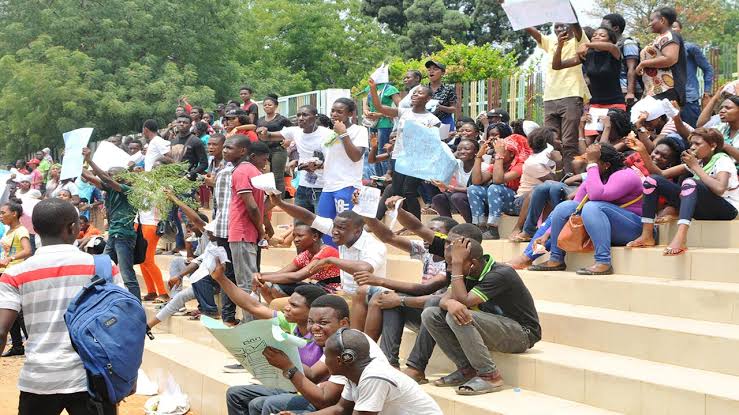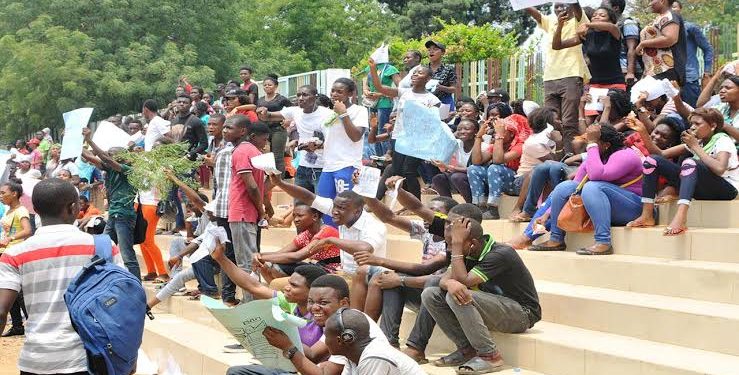Nigeria’s education sector is currently grappling with a dual crisis: the alarming number of out-of-school children and persistent challenges plaguing university administration. These critical issues demand urgent attention to safeguard the nation’s future.
The Out-of-School Children Crisis: A Looming Threat
The statistics are grim. Nigeria currently holds the unenviable position of having the highest number of out-of-school children globally, with estimates reaching 18.5 million. This includes 10.2 million at the primary level and 8.1 million at the junior secondary level (UNICEF, 2024). This figure is projected to rise to 20 million if decisive action is not taken.
Several intertwined factors contribute to this crisis:
- Insecurity and Conflict: Insurgencies and banditry, particularly in the North-East and North-West, have led to school closures, destruction of infrastructure, and widespread fear, significantly impacting attendance.
- Poverty: The direct and indirect costs of education, coupled with household poverty, force many children into child labor or early marriage, especially for girls.
- Cultural and Gender Barriers: Socio-cultural norms, particularly in Northern Nigeria, often limit girls’ access to education, with a significant percentage married before 18.
- Inadequate Infrastructure and Resources: Many schools lack basic facilities, qualified teachers, and adequate learning materials, making the learning environment unappealing or even non-existent.
- Weak Governance and Financing: Insufficient funding from both federal and state governments, coupled with issues of accountability and fragmented decision-making, hinder effective implementation of education policies.
The implications of this crisis are far-reaching, threatening Nigeria’s social, economic, and security prospects. A large illiterate population stifles national development and perpetuates cycles of poverty.
Challenges in University Administration: A System Under Strain
Beyond basic education, the tertiary level is also facing significant headwinds. Nigerian universities grapple with a myriad of administrative challenges that undermine their capacity to deliver quality education and research.
Key issues include: - Chronic Underfunding: Despite fee hikes in many public universities, inadequate government allocation and limited internally generated revenue leave institutions struggling to meet operational costs, maintain infrastructure, and provide competitive remuneration for staff. This has led to issues like electricity blackouts on campuses.

- Industrial Disputes: Lingering disputes between the government and university-based unions (like ASUU and SSANU) over welfare, working conditions, and autonomy often result in prolonged strikes, disrupting academic calendars and impacting student learning.
- Infrastructural Deficits: Many universities suffer from dilapidated facilities, outdated equipment, and insufficient learning resources, hindering effective teaching and research.
- Brain Drain: Poor remuneration, inadequate research opportunities, and a challenging work environment continue to drive skilled academic staff to seek opportunities abroad.
- Governance Issues and Political Interference: Instances of poor governance, academic corruption, and political interference in the appointment and removal of Vice-Chancellors and governing councils undermine institutional autonomy and stability.
These challenges collectively impact the quality of graduates, research output, and the overall global competitiveness of Nigerian universities.
Pathways to Progress: A Call for Concerted Action
Addressing these intertwined crises requires a multi-pronged, collaborative approach: - For Out-of-School Children:
- Increased and Equitable Funding: Prioritizing education funding at all levels of government, with a focus on equitable distribution to underserved areas.
- Enhanced Security: Robust measures to ensure the safety of schools and communities in conflict-prone regions.
- Community Engagement and Awareness: Working with local communities to challenge harmful cultural norms, promote the value of education, and foster participation in school management.
- Targeted Interventions: Implementing programs like accelerated non-formal education pathways and conditional cash transfers to incentivize school attendance for vulnerable children.
- Enforcement of Child Rights Act: Ensuring the legal framework protecting children’s right to education is fully implemented.
- For University Administration:
- Sustainable Funding Model: Developing a diversified and sustainable funding model for universities that reduces reliance on government subventions and encourages private sector partnerships.
- Strengthening University Autonomy: Upholding the autonomy of universities in their administration, financial management, and academic decisions, free from undue political interference.
- Improved Welfare for Staff: Addressing the concerns of university unions through fair remuneration, improved working conditions, and robust collective bargaining agreements to minimize industrial actions.
- Infrastructural Development: Investing significantly in modernizing university infrastructure, including laboratories, libraries, and student accommodation.
- Capacity Building: Providing continuous training and development opportunities for academic and administrative staff to enhance their skills and promote innovation.
The current administration has reaffirmed its commitment to education reform, with initiatives like the Nigerian Education Loan Fund (NELFUND) aiming to support indigent students. However, systemic and sustained efforts are crucial. The future of Nigeria hinges on its ability to educate its youth and build robust, globally competitive institutions of higher learning. Ignoring these challenges would be to mortgage the nation’s progress.
Also read: https://nationscuriosity.com/nigerias-economic-tightrope-an-in-deppth-lo/


